As the global landscape shifts, Russia is rekindling its relationship with Africa, forging a partnership that promises mutual benefits.
From energy and infrastructure to security and trade, Moscow is making strategic inroads, reasserting its influence on the continent. However, this partnership is considered transactional.
Russia’s interest in Africa is not new. During the Cold War, the Soviet Union supported African independence movements and maintained strong ties. However, after the Soviet collapse, Russia’s presence waned.
Now, under President Vladimir Putin, Russia is rediscovering Africa’s potential.
However, critics say Russia’s aim is to expand its global influence, access valuable natural resources, and challenge Western dominance, and africa’s vast resources, including gold, diamonds, uranium, and oil, are particularly attractive, hence their existence in Africa.
Zambia’s opposition member of Parliament for Mufulira Central, Golden Mwila, says Russia’s relationship with African countries can only be necessary if it is mutually beneficial, further warning African countries to be cautious as they engage with European country.
Moscow pursues a combination of military, diplomatic, and economic interests in Africa.
Over the years, Russia’s involvement in African affairs includes the supply of arms and equipment to African countries and seeks military bases.
Some of this has been done through mercenary group Wagner, now called the Africa Corps.
Militarily, Russia mostly focuses on weapons trade, but it is also seeking to expand its operational footprint, including by signing agreements for new military bases.
Diplomatically, Russia’s overarching goal is to gain more support for its vision of a multipolar world order MPWO, based on weakened Western influence.
At the United Nations, it lobbies African allies for favorable votes on issues such as the Ukraine conflict.
Attempts to seek African support
Experts say that Moscow looks to Africa to show that Russia is not an international pariah, despite ongoing Western sanctions against it.
Speaking at what was dubbed the “BRICS Plus” session, which included countries that are considering joining the bloc, Putin accused the West of trying to stem the growing power of the Global South with “illegal unilateral sanctions, blatant protectionism, manipulation of currency and stock markets, and relentless foreign influence ostensibly promoting democracy, human rights, and the climate change agenda.”
“Such perverse methods and approaches, to put it bluntly, lead to the emergence of new conflicts and the aggravation of old disagreements,” Putin said. “One example of this is Ukraine, which is being used to create critical threats to Russia’s security, while ignoring our vital interests, our just concerns, and the infringement of the rights of Russian-speaking people.”
Conflict came up repeatedly at the meeting, which saw the first visit to Russia from United Nations Secretary-General Antonio Guterres in more than two years and drew an angry reaction from Kyiv.
Guterres called for “a just peace” in Ukraine, in line with the U.N. Charter, international law and General Assembly resolutions.
The Russia-Africa Partnership Forum
From November 9-10, Russia gathered African leaders in Sochi for the Russia-Africa Partnership Forum, raising concerns of neocolonialism and deceit.
A draft statement for the summit leaked before the event revealed points that were contradictory to Russia’s actions.
Russia used this first Russia-Africa Ministerial Summit to continue pushing narratives and securing deals that advance its strategic objective of undermining the Western-led international system and highlighting its stature as a global power in Africa.
The Kremlin advanced its vision of Russia as the leader of an anti-Western bloc seeking a multipolar world order and highlighting the narrative that Russia is not internationally isolated.
It also discussed increasing cooperation in several sectors including finance, nuclear energy, satellite technology, and security.
These partnerships aim to boost Russian influence and its image as a great power at the expense of Western economic, political, and security interests.
Critics have argued that the draft joint statement, which claimed cooperation with Africa, was misleading and hypocritical.
It pledged to fight against neocolonialism, yet Russia’s actions in Africa and other parts of the world suggest otherwise.
The anti-democratic rhetoric misleading African countries
Congolese human rights activist Andrea Ngombet noted that Russia’s anti-democratic rhetoric misleads African countries, and that nations aligned with Russia are neither safer nor richer.
“In fact, they are mostly in the brink of collapse, and human rights violations such as the massacre in Moura, northern Mali, remind us of the predatory and colonial nature of Russian cooperation. African problems are intertwined with the world and while fostering an African perspective to solve them, they must remain connected to the betterment of humankind,” Ngobet said.
Key areas of contention include Russia’s “counterterrorist” activities, which some argue are more about expanding influence than combating extremism.
However, Anton Kobyakov, the Adviser to the Russian President, said the ministerial conference of the Russia Africa partnership forum is an important initiative that aims to intensify comprehensive cooperation between Russia and African countries in all it’s dimensions.
Russia’s involvement in global conflicts, including its aggression against Ukraine, undermines its praise for “universal norms” in conflict resolution.
Additionally, Russia’s role in the global grain supply crisis contradicts its boasts about food aid.
In 2022, Russia supplied 11.5 million tons of grain to Africa, but this was insufficient considering the impact of their actions on global food security.
Economically, less than 1 percent of the country’s foreign direct investment goes to the African continent, and its $18 billion in trade with African countries lags far behind the United States’ $64 billion and China’s $254 billion, according to the Congressional Research Service.
However, accessing valuable natural resources, such as gold, diamonds, uranium, and oil in Africa remains Russia’s priority.
And amid increasing global demand for the inputs necessary for alternative energies and advanced technologies, Africa’s vast reserves of critical minerals motivate Moscow’s efforts as well.
To accomplish these goals, analysts say Russia uses its favored strategy of working through low-cost intermediaries, including PMCs or local political allies.
Its rhetoric relies on so-called memory diplomacy to tap into lingering anti-colonial sentiment, often using disinformation campaigns to discredit pro-Western forces and frame itself as a better partner than the West
Russia’s military support is a significant aspect of its influence, often provided through private military contractors like the Wagner (Africa corps) Group.
This mercenary force has been linked to human rights abuses and destabilization in countries such as Mali, Libya and the Central African Republic.
Nuclear Energy support to African countries
The Russians have been planning to set up nuclear energy plants in most African countries but their efforts keep proving to be fruitless.
Setting up such technologies In Africa would only benefit Russia itself and not the poor Africans because it is too expensive to set up, some energy experts explained.
However in Zambia, concern was raised by the upnd government when opposition leader Fred M’membe revealed that he was in talks with the Russian government over setting up the nuclear energy plants.
Despite the worries and concerns raised by many African countries, Dr M’membe still pursued Russians over the same.
UPND Deputy Secretary-General Gertrude Imenda questioned Dr. M’membe’s motives for discussing nuclear energy with Russia, suggesting self-interest rather than concern for Zambia’s power crisis.
Imenda emphasized that genuine intentions would involve collaborating with the government, not bypassing them, to discuss the benefits and effects of such.
Russia’s interest in setting up nuclear plants in Zambia raises concerns about exploitation and environmental degradation.
Their nuclear program prioritizes expansion, with a focus on fast neutron reactor technology and exporting nuclear expertise, which most African countries can not comprehend.
Mufulira Central Member of parliament Golden Mwila says that there is no problem with Russia having transactional relationships with Zambia and any African country, but urged caution and discouraged deep involvement with Russia.
Mwila said Zambia must push an agenda that not only benefits Russia but also benefits Zambia.
Moscow cultivates ties with African leaders through high-level visits and diplomatic engagements. However, these efforts often mask a more sinister agenda, as Russia spreads disinformation to manipulate public opinion and undermine Western influence.
This propaganda campaign has been particularly effective in countries with limited media freedom.
The consequences of Russia’s actions are alarming. Through its support for authoritarian leaders and coups, Moscow undermines democratic governance in Africa.
Its military involvement and disinformation campaigns exacerbate regional conflicts, perpetuating instability and violence.
WARNING! All rights reserved. This material, and other digital content on this website, may not be reproduced, published, broadcast, rewritten or redistributed in whole or in part without prior express permission from ZAMBIA MONITOR.


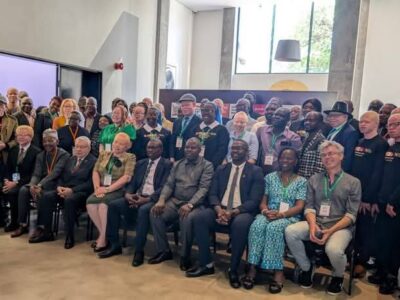
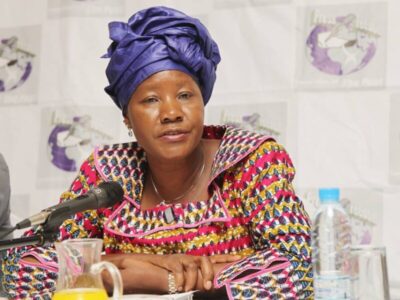
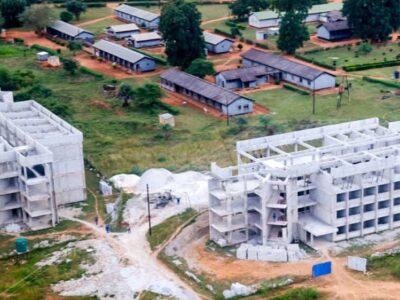
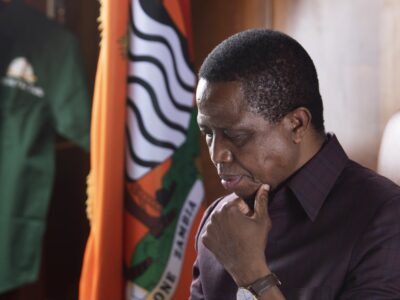
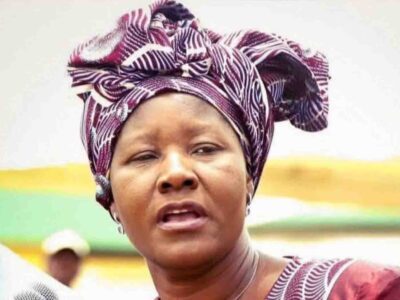
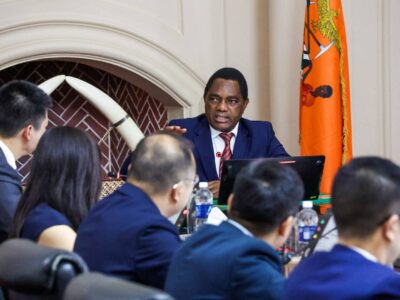




Comments